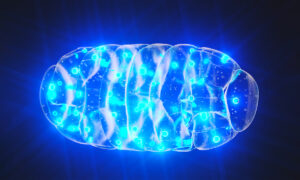Brain training through a computer game (video)
Medical experts say people with PTSD experience intense and disturbing thoughts, related to a traumatic experience, well after the event occurred.
Dr. Ruth Lanius, a scientist at Lawson and professor at Western, says the brain training is aimed to help patients regulate their feelings, emotions and state of relaxation, which are affected by PTSD.
Related Stories
- Participants needed for study on pandemic’s impact on veterans and their spouses
- Study using yoga breathing technique to improve mental health for health care workers
- Participants needed for study on pandemic’s impact on veterans and their spouses
What we were hoping to do was help people retrain their brains. People suffering with PTSD and other psychiatric conditions, their brains don’t fire appropriately. Some of the major brain networks that help to think, plan and concentrate, that help us have a sense of self and who we are in this world, are really affected by PTSD.
The study is about regulating and normalizing a patient’s alpha waves.
Alpha waves reflect a state of relaxation, and in PTSD we know individuals are characterized by a chronic state of hyper-arousal and hyper-vigilance and there are decreased alpha waves in PTSD
Dr. Andrew Nicholson, affiliated scientist at Lawson.
To help regulate alpha waves, patients have electrodes placed on their scalps to measure their voltage potential, said Nicholson.
Patients then receive feedback about their level of alpha waves reflected through a computer game.
For example Pac-Man eating dots, so when Pac-Man is seen to be eating the dots that mean people are decreasing their alpha waves, they develop their own strategies to change their brainwaves.
Lanius
The study involved weekly sessions of neuro-feedback over 20 weeks. Participants were asked to reduce the intensity of the brain’s dominant brain wave – the alpha rhythm.
Brain activity was visualized as either a still cartoon or a distorted picture. If the alpha rhythm was successfully reduced, the cartoon started playing or the picture started becoming clearer.
Nicholson said the treatment is bettering the lives for those living with PTSD.
They’ve said, for example, ‘I feel like myself, I feel like the pieces of myself have come together as a whole.
The trial tested neuro-feedback with a total of 72 participants, including 36 participants with PTSD and 36 healthy control participants. Of those with PTSD, 18 were randomized to participate in neuro-feedback treatment while the other 18 acted as a comparison group.
The study found that the severity of PTSD symptoms decreased in participants randomized to receive neuro-feedback treatment.
After treatment, 61.1 per cent of participants no longer met the definition for PTSD
Lanius
The team notes the treatment could have a number of clinical implications following further validation.
Neurofeedback could offer an accessible and effective treatment option for individuals with PTSD. The treatment is easily scalable for implementation in rural areas and even at home […]
Lanius







